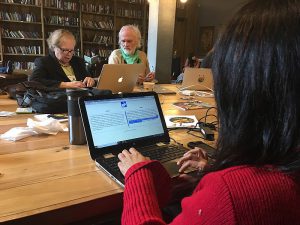
English is a second language or foreign language in many advanced countries, such as China, Japan, Korea, and Europe. The researchers of these countries have limited working knowledge of English language. They perform their research work in their native language.
This implies that most Chinese, Japanese, Korean, French, Italian, German, and Portuguese researchers need the services of a professional adept at academic translation.
The base language is their native language, while the source language is English. These ESL researchers still need to publish their work in international peer-reviewed English journals. That’s where Harrisco company’s translation services come into effect.
Harrisco is an academic editing and translation company that has been in service in Seoul, Korea since 1997. The professional translators are themselves academics with MS and PhD degrees. They also have additional professional English degrees, such as CELTA, BELS, and TOEFL.
Why choose Harrisco’s translators over other freelance talent? Well, Harrisco is a reputed company that employs only technically qualified translators with five years of experience. Be assured that your academic manuscript is in safe hands with Harrisco. The company has a global network of more than 150 translators, with advanced degrees in science and technology.
These bilingual individuals are an invaluable resource to the field of academic publishing. This is because although English is the lingua franca of scientific publishing, the onus of scientific research has now shifted to ESL countries like China and Korea.
Some ESL researchers may seek the help of their bilingual friends for translation. However, they must be warned that bilingual friends have just elementary fluency in source and target languages. Will they understand technical jargon of science, technology, and medicine in English?
By hiring Harrisco’s academic translators, all technical terminology can be translated correctly from the source to the target language. This ensures that the manuscript is translated with utmost care, ensuring accuracy of content. Thus, authors who are not fluent in English can seek help from Harrisco academic translations and smoothen the publication process of an international journal.
Harrisco’s academic translations have become a name to reckon with in Korea, Japan, and China. The company has a track record of 100% publication output in international peer-reviewed English journals. Even novice researchers may find it difficult to write their manuscript in impeccable English, especially if they live in ESL and EFL countries.
In such cases, it is always preferable to translate the manuscript from the source language to the target language, that is, English. Harrisco offers complete publication support to ESL and EFL authors, ensuring that their work does not face any English language issues. Harrisco is a top brand associated with the world of academic publishing.


